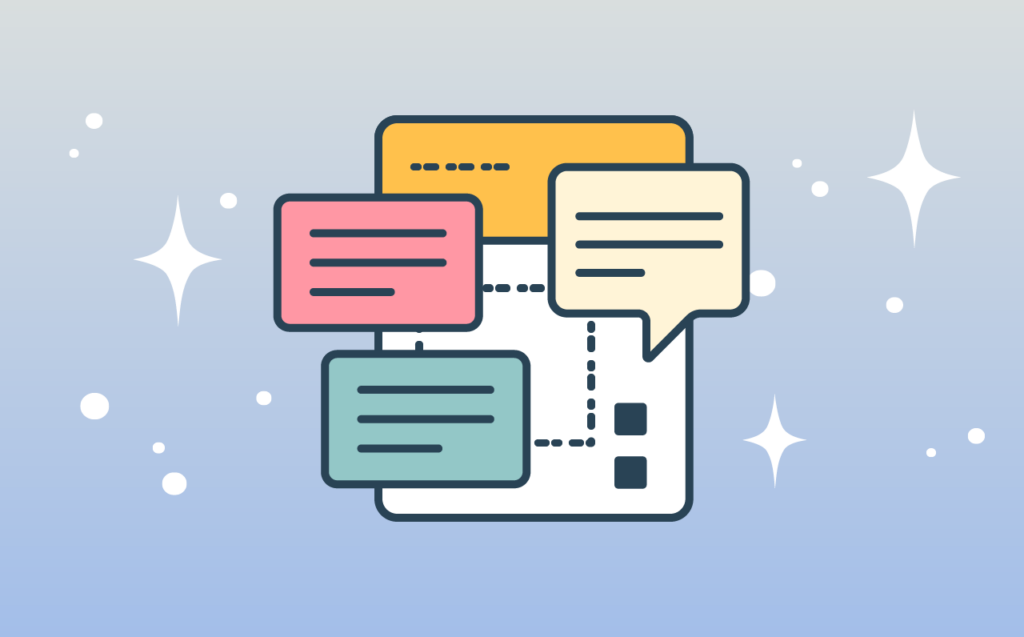Close your eyes and imagine a medical clinic down the street that’s outfitted with the latest MRI tech. It’s shiny, it’s new, and it’s barely used—thanks to a mountain of paperwork that keeps patients waiting weeks for crucial scans.
Or, picture a small town that’s home to some of the best cardiologists in the state—but whose local residents still face persistent challenges with heart health.
Too often, there’s a world of difference between the care we could provide and the care we actually do provide. It’s not always a lack of resources or knowledge keeping healthcare providers from delivering high-quality services, but a lack of clear pathways for clients to access those services. It’s rules, regulations, and distractions that get in the way of clinicians effectively harnessing the right tools and expertise.
This gap is evident in mental healthcare, too. Therapists are burdened with administrative tasks that pull them away from the heart of their work: engaging with and supporting their clients. And too often, even seemingly minor problems (like missing or delayed documentation) have much bigger downstream consequences (like disrupting care continuity). Both patients and providers suffer as a result.
And while it sometimes seems like technology is adding to—rather than alleviating—these issues, I’ve seen newer, more innovative vendors step up to address the gap between what is and what could be head-on. That’s our goal here at Eleos—to create technology that actually improves the therapeutic process and the quality of care delivered.
My research tells me that using Eleos does, in fact, lead to better care outcomes. As a scientist, I’m still learning all the reasons why, but three contributing factors are resoundingly evident: greater client engagement, better documentation, and more insightful data analysis.
How does AI tech improve care quality?
1. Greater Client Engagement
Therapists “sit” different—and clients feel heard.
I’ve noticed that when I use Eleos with my clients, I find myself just “sitting” differently in my chair. I’m no longer distracted by the need to frantically remember and write down every detail. With this freedom, I can be fully present with the person in front of me.
On the other hand, when I’m not able to use Eleos, I can feel it. I may lose focus on the client while taking notes, especially because it requires me to physically direct my gaze away from them. This break in body language alone is enough to disrupt the session. But Eleos makes therapy more enjoyable for both of us. It allows me to concentrate on what truly matters—fully engaging with my client and providing the support they need.
This is one of the main ways that Eleos improves care quality, and it’s quite simple: Eleos helps everyone feel more comfortable, engaged, and invested in therapy—which naturally leads to better therapy outcomes.
In 2023, our research team here at Eleos co-led a randomized controlled trial (RCT) to investigate the impact of our technology in a more quantitative fashion. One of our most surprising findings was the significantly higher attendance rate for clients whose therapists used Eleos. These clients attended 67% more sessions than those whose therapists did not use Eleos. (And not surprisingly, they achieved 3–4x better symptom reduction.)
This disparity is not due to differences in client satisfaction, as both groups reported similar levels of satisfaction with their therapy. Instead, the results of this study suggest that clients felt stronger engagement and connection with their providers when Eleos was handling the majority of notetaking—likely because those providers were more present and prepared, leading to a more meaningful therapy experience.
2. Better Documentation
Notes get done on time, and nobody’s overwhelmed.
In many organizations, note submission can be delayed significantly—sometimes by 16 to 30 days. This might not seem like headline news, but accurate and timely documentation is an underappreciated aspect of quality care. It’s a “necessary evil” that feels tedious to many therapists but is actually crucial to care continuity and client progress.
With Eleos, 90% of notes are submitted within 24 hours of service, so providers can easily access the most up-to-date documentation for any particular client—and then pick up right where they left off at the end of the previous session. This continuity is essential for effective therapy, as it preserves progress made in previous sessions. In our RCT, therapists using Eleos submitted their notes, on average, 55 hours sooner than therapists who provided the usual care with no AI documentation assistance. In a different study that we presented at the Society of Behavioral Medicine 2022 conference, Eleos reduced the time providers spent on note writing by 42%.
In multidisciplinary teams, timely documentation supports better communication and knowledge-sharing among providers. My treatment may differ from that of a dietitian or psychiatrist, but having access to their notes in real-time allows for a more coordinated approach to care. Maybe my client shared something with another provider that I need to know in order to provide the best, most informed therapy possible. It’s not realistic for me to spend hours checking in with other members of the care team to piece together a client’s history—but with complete, accurate, easy-to-find documentation, I can get a full picture of what’s going on with that individual without reinventing the wheel.
With tools like Eleos, documentation delays are minimized so that all team members have the latest information at their fingertips. Up-to-date client data is vital to the delivery of holistic and effective care, and it allows each provider to tailor their approach based on the most recent developments.
3. More Insightful Data Analysis
Care patterns and themes are surfaced automatically, enabling therapists to fine-tune their approach.
Eleos collects, analyzes, and reports data so therapists are empowered to make the most of their sessions. This analysis can reveal hidden trends that significantly impact client care, such as recurring therapy themes (e.g., grief, financial stress, or housing problems).
One therapist using Eleos shared that the session insights for a particular client surfaced grief as a recurring theme—something the therapist hadn’t picked up on herself. As a result, she was able to refer the client to grief support services. Therapy is simply more effective when therapists are able to recognize and address all of the underlying issues that are contributing to the client’s problems, and tools like Eleos can help bring those issues to the forefront.
Additionally, therapists often share with me that Eleos Health’s session insights help them stay on track with their treatment plans and interventions. For example, the system might highlight that a client has repeatedly mentioned feeling overwhelmed, guiding the therapist toward leveraging stress management techniques or adjusting their therapeutic approach to focus on one thing at a time.
I have also found that receiving objective feedback on necessary interventions that were not included in the session helps me evolve as a clinician. When reviewing session insights, I have discovered instances where I unintentionally dominated the conversation with my client. This information prompted me to reflect on my treatment approach and engage in meaningful discussions with my client about our therapeutic alliance. Such insights empower me to refine my interventions and provide more personalized care.
But the most rewarding thing to hear from Eleos users is that the feedback they receive from the system serves as reinforcement and validation. Seeing how their interventions align with best practices and evidence-based techniques boosts their confidence—and consequently, their effectiveness as providers. It’s like having a peer consultation session built right into the documentation process, and it gives hardworking therapists much-needed encouragement that their efforts are working.
The bottom line? Care quality matters—and quality AI helps make it possible.
I’m still learning all the ways Eleos improves care quality, but the overall impact is undeniable (and humbling). Through enhancing patient engagement, ensuring timely and thorough documentation, and providing data-driven insights, Eleos is transforming the way we deliver behavioral healthcare.
But, the work isn’t done yet. As an industry, we’re still exploring and refining our use of AI and other emerging technologies—and studying their impact on care in an objective, scientific way. Still, one thing is certain: AI tools like Eleos have the power to bridge the gap between the care we do provide and the care we aspire to provide. And that’s potential we can’t afford not to realize.

